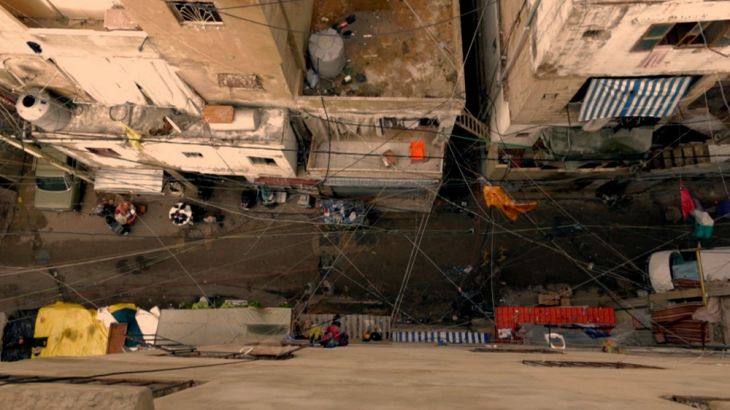
Life in the Shadows: Palestinians in Lebanon
Decades after migrating to Lebanon, more than 250,000 Palestinians are still denied basic social and economic rights.
Filmmaker: Bahiya Namour
In 1948, hundreds of thousands of Palestinians were forced to leave their country during the Nakba, the “catastrophe”, the founding of the state of Israel.
Keep reading
list of 4 itemsBeyond borders: Migrants online
Tunis police raid sees refugees abandoned near the border with Algeria
‘No turning back’: Carnation Revolution divides Portugal again, 50 years on
The majority of Palestinians in Lebanon retain the hope of one day returning home – known internationally as “the right of return”. But almost seven decades later, refugee camps have become part of the urban landscape of Lebanon.
More than a quarter-of-a-million Palestinians still live in the 12 UN-registered camps and 42 other so-called gatherings across Lebanon. Lebanon is their home but any chance of becoming a genuine part of the communities they live in is constantly undermined by strict laws “protecting” Lebanese citizens’ rights, general safety and wellbeing.
Where can I go? Only in the camp. I stay awake so that I don't dream. If I dreamt, I'd fall into a black hole.
Mustafa Shehada is a qualified engineer but finding permanent employment with a Palestinian ID has proved near impossible. Being paid on a daily basis for more than a decade has also taken its toll.
“I’ve been working since I was 16. People like me don’t start their lives at 28. Our lives are over by 28,” says Shehada.
His story is typical among the immigrant Palestinian community in Lebanon.
“Lots of ‘tea boys’ have bachelor’s degrees … When I was studying for my master’s at university in Beirut, I had a colleague who was a taxi driver,” says Palestinian journalist Yasser Ali.
Most Palestinians simply want a normal life, to work and invest back into the place where they’ve grown up. However, Yasser Ali says that not only has the initial “political welcome” of Palestinians to Lebanon long worn out, but that the current situation has stunted any growth within the immigrant communities.
According to the journalist, “Illiteracy among Palestinians in Lebanon has reached 25.5 percent. But it’s only 6 percent in the West Bank and less than 1 percent in Gaza.”
The situation has been exacerbated by the mass influx of new refugees from the Syrian civil war, meaning that the Lebanese perspective on the deteriorating situation is increasingly one of “Lebanese first”.
This extends not only to prioritising jobs for locals, regardless of expertise or education level, but also to home ownership.
“Lebanon’s concern about the permanent settlement of Palestinians in Lebanon was the reason behind this law. But it’s not specifically aimed at Palestinians,” claims Lebanese lawyer Antoine Nasrallah.
But Ali Howeidy, of the Palestinian Return Centre, says that “someone with citizenship of a Western country can own property but a Palestinian can’t.”
The increase of crime and “radical activity” that has allegedly originated in the camps has given the Lebanese government the case it needs to continue applying rules restricting basic Palestinian rights.
“It’s a security belt, needed for the special security situation of these camps. We could do without it by developing the Lebanese security capabilities, cancelling checkpoints and establishing state authority everywhere, including the camps. But this would be challenging. Palestinians are concerned about their security just as much as the Lebanese,” says Lebanese MP Ghassan Moukheiber.
Yasser Ali has his own theory on the endgame for this discrimination if the Palestinians communities continue to grow: “It’s clear they want Palestinians to give up, despair and emigrate. That’s the main goal.”